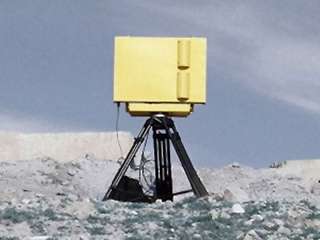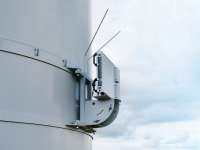Spexer 500 and Spexer 1000
Description of the radar set, tactical-technical characteristics

Figure 1: Spexer 500
| Specifications | ||
|---|---|---|
| Spexer 500 | Spexer 1000 | |
| frequency: | X-Band | |
| pulse repetition time (PRT): | ||
| pulse repetition frequency (PRF): | ||
| pulsewidth (τ): | ||
| receive time: | ||
| dead time: | ||
| peak power: | ||
| average power: | 4 W | |
| instrumented range: | 4.8 NM (≙ 9 km) |
9.7 NM (≙ 18 km) |
| range resolution: | ||
| accuracy: | ||
| beamwidth: | ||
| hits per scan: | ||
| antenna rotation: | ||
| MTBCF: | ||
| MTTR: | ||
Spexer 500 and Spexer 1000
Spexer 500 and Spexer 1000 are operating in X-Band perimeter radars for the surveillance of camps, perimeters, infrastructures and borders. They also ensure the surveillance of sensitive and protected areas such as oil fields, power plants, airports, etc. Both radars have the same functionalities but offer different detection ranges for optimal use in the respective environments. They are initially developed for military use and use the principles of FMCW Radar.
The antenna is a flat phased-array with digital beamforming. It covers a sector of 120 degrees without movement of the antenna.
Spexer 500 AC
The Spexer 500 AC is a stripped down cheaper version. This version is intended for civil use in wind farms. This radar warns pilots about possible collisions by detecting approaching flying objects at an early stage and by switching on the beacon lights. The antenna pattern is changed from the above-mentioned military version by not radiating towards the ground, but only into the air space to detect very small and low-altitude aircraft. Thus, these beacon lights can be turned on only when needed. Outside of this time, this lighting can be switched off and provides a dark night, that protects the environment.

